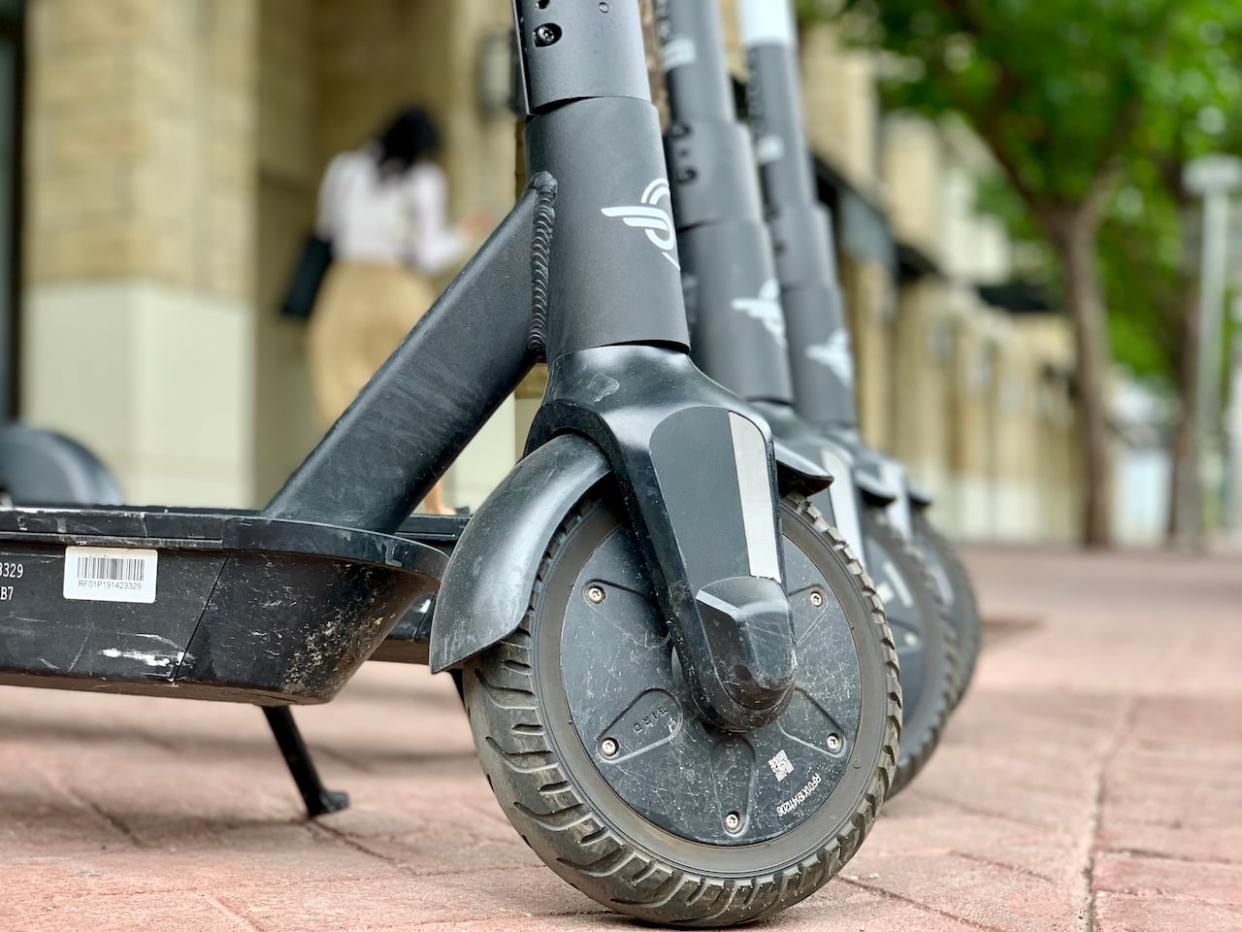Toronto councillors frustrated with lack of e-scooter enforcement

Some Toronto city councillors are expressing their frustration with the lack of enforcement of the city's own laws prohibiting e-scooters.
Under city bylaws, people aren't allowed to use electronic scooters on public streets. During a meeting on Thursday, council once again refused a pilot that would potentially legalize the vehicles.
Despite the rules, the number of people using e-scooters has only grown throughout the years, posing safety risks to the public and liability risks to the city, according to a city report on its plan to manage "micromobility" in the city, which includes vehicles such as e-mopeds and electric mini-cars.
"They're not going to go away any time soon, and simply saying that we will not participate because of liability issues, I think is not good enough," said Toronto Centre Coun. Chris Moise, who's in favour of an e-scooter pilot in the city.
"Pulling over the odd electric scooter is not going to happen," added Scarborough-Guildwood Coun. Paul Ainslie. "We need to really get ahead of this, figure out what the solution is, move this forward, because we're not going to stop electric scooters from being used in this city."
The city says it needs the provincial and federal governments to play a bigger role in regulating e-scooters across the board before staff can tackle the issue locally.
Toronto wants the province to create licensing and insurance schemes and the federal government to better standardize how e-scooters are designed. In the meantime, with enforcement resources tight, education and awareness remain the best course of action, staff said.
City approved use of small electric cars on streets
But some council members say that until that happens, people will continue using e-scooters, posing a risk to road safety.
"I certainly hear in my ward over and over again stories both about the gig workers who get injured and get no compensation and about those they injure who get no compensation," said University—Rosedale Coun. Dianne Saxe.
"I don't think that we can simply bury our heads in the sand and somehow the problem is going to go away," said Humber River—Black Creek Coun. Anthony Perruzza.
CBC Toronto has reached out to the provincial and federal government for comment.
City council did approve a slew of recommendations included in the report Thursday, including asking the province to allow the city to license courier businesses, their vehicles and implement an insurance scheme for them. The city also voted to install signs in parks and trails stating what vehicles are allowed, as well as requesting a joint police and staff "educational blitz" this summer, along with an enforcement blitz next year.
Council has also opted into allowing the use of low-speed vehicles such as small electric cars on Toronto streets and directed staff to help create a "multi-partner table" with businesses, people with disabilities and other locals to collaborate on a public education campaign on road safety.

